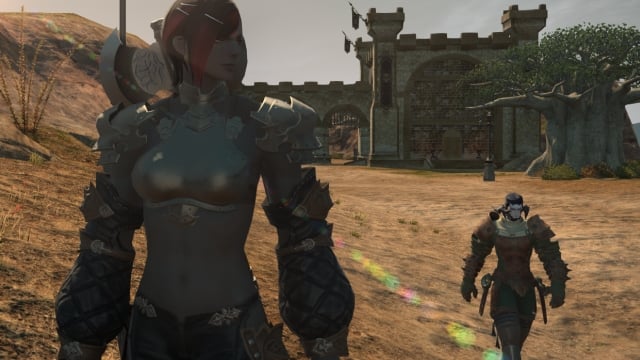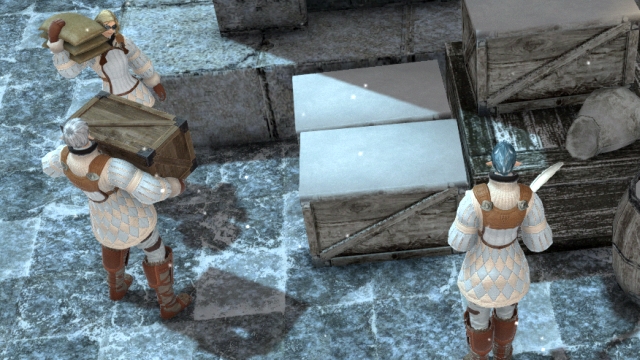Over the past year and change, I’ve written a lot about guilds. About how to run one, about how to join one, about how to be a good member in one, all of those topics. But starting one is something that I’ve never covered explicitly, just fragments of starting that guild.
So consider this somewhere between a go-to guide and a greatest hits compilation, because I’m going with both. This week, I’m going to talk about how to start a guild from scratch, complete with a look back through the columns I’ve written so far for people who might have missed them before. It’s your one-stop checklist for making a new guild and moving on to the adulation of members and the envy of your fellow players.
Thus, we start with step one…

Get your focus
My very first column on the topic talked about how every guild should have a focus. That hasn’t changed. Ideally, this isn’t even a step you need to go to because the whole reason you want to start a guild in the first place is because you have a need that’s not yet being served by the existing communities in and around your game.
You should, of course, ask yourself that question before deciding to run a guild, as well as making sure that you actually want to run the group. But let’s take all of that for a given at the moment. Once you have your focus, you can move on to the next step.
Have your minimum
I’ve talked before about deciding on the minimum size of guild for what you want to accomplish. Once you know you want to go forward, you want to be aware of both that number and your game’s minimum number of applicants, because that needs to be considered as well.
In some games, at least ten people have to be there for an in-game guild. In other games, it’s only three. If your minimum size is less than what you require for an in-game guild, you should probably start getting a bit over your minimum if you can. Paying people in-game to help you fill out the required slots is kind of a bad show right out of the gate.
Some games, of course, don’t feature any sort of actual in-game guild support. In those cases, you should be aware of how to work with guilds/groups/etc. in games that don’t really support them. You should also be setting up and considering what you want to do with your guild site, since that’s a great way to get organized before you pull the trigger in-game.
Obviously, Gamer Launch is a great place to go for those site purposes, but I’ve also talked before about how you can use email newsletters in lieu of a site if you’d prefer. Just a slightly lower-stress option, if you need it.

Set down the rules
If you’re intimidated by the thought of setting down basic rules, you don’t have to be; I’ve already provided you with a nice drag-and-drop set of basic rules to lay down. You’ll have to fill in more specialized rules on your own, but the basics will save you time in both the long and the short run.
Having the rules ready at this point is important for many reasons, not the least of which because you want people who you’re bringing in to this new organization to know what they’re getting into. If several of you are coming from the same original spot, you probably have a few things that you want to change right off of the bat. Now’s an obvious time to do that.
Determine your application and your recruiting process
Yes, there’s also an application template for you to get started. That part isn’t nearly as difficult as it might seem, once you have all of the pieces in place.
Assuming your group isn’t yet at your minimum, you’ll want to recruit new people. This is where having a site is particularly useful, as there’s the easy method of telling your fellow players, “Hey, we’re getting this thing together, check it out to be a founding member,” and so forth. Keep in mind, though, that even before the guild forms you might be running afoul of certain recruitment mistakes; keep your eyes open for those. You’ll also want to think about how to turn down applicants so that you don’t burn bridges, and you want to be recruiting in the smartest possible ways.
If you’re already at your minimum, you probably don’t need to have a super-involved discussion about recruitment just yet, but you should still talk about it, and you should also be paying attention to what your guild needs to do when it’s not recruiting.

Determine your leaders
I’ve talked before about how you can opt for a more distributed leadership style if you’d rather, but now is the time to figure that out. You’re finalizing rules and plans from here on out, and you need to make sure that your group is on board with what you have planned.
Since we’re talking about forming this, odds are good that you’re going to be one of the people in charge, which means you probably want to be aware of the mistakes you’re going to make. You also want to make sure that you know what your group is actually going to need in terms of officers, just so you avoid having too many or too few people calling the shots. And keep in mind that some of your picks might wind up being problematic, but you can figure out how to deal with that ahead of time.
Form up and start building
You’ve got enough people, you’ve got a structure in place, and you’re otherwise ready. Time to pull the trigger and make it happen! You’ll want to start working on building and maintaining that community right away, particularly by creating good projects for everyone. The high of having just established something where there once was nothing is only going to be something you can ride for a limited amount of time.
It’s also worth considering the life cycle of any given organization at this point. Obviously, you’re still in the nascent stages, but you’re not going to be there forever, and knowing what minefields to expect while being able to track the guild as a whole will prove useful. Instead of reacting to everything with confusion as it happens, you can move ahead of trends, problems, and the like. Acting to do right by the guild is better than reacting when things go wrong.
Starting a new group is only a fragment of the overall path, naturally. You’ll have a lot of ground to cover over what will hopefully be a long life, and the fine details will need to be pushed and moved gently over time. But paying attention to how you start off and following it step-by-step gives you a leg up on the future. It means that you know you’re going in with as much knowledge and planning as possible.
Plus, in this case, a lot of those resources are right there for your perusal without the need for further searching. So it’s win-win.







Published: Mar 22, 2016 10:08 am